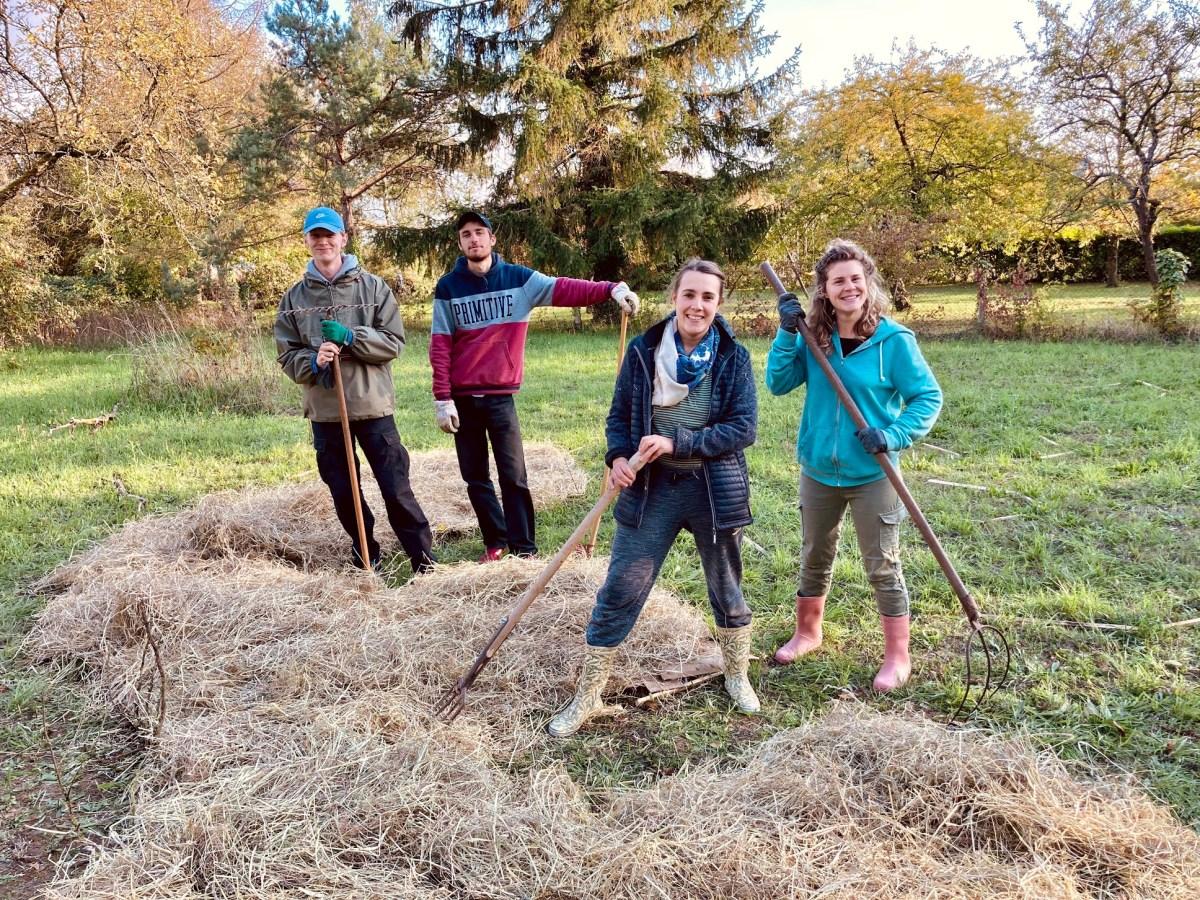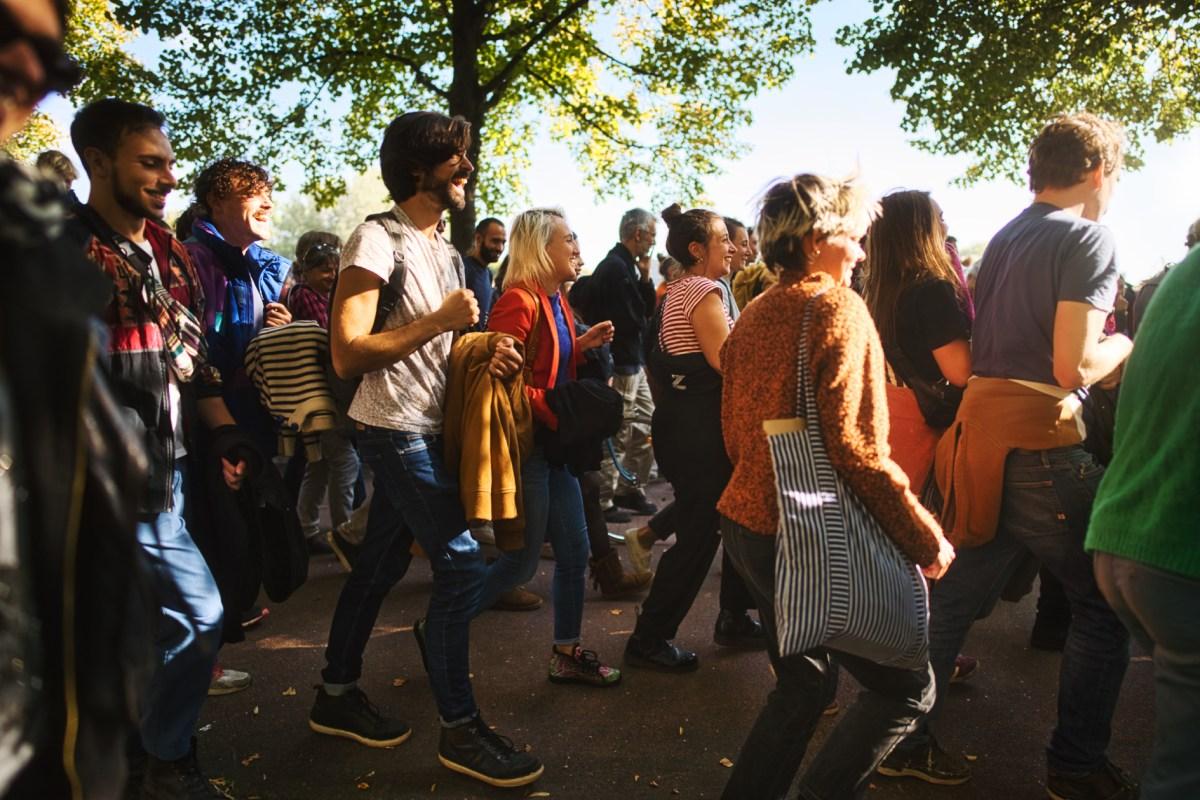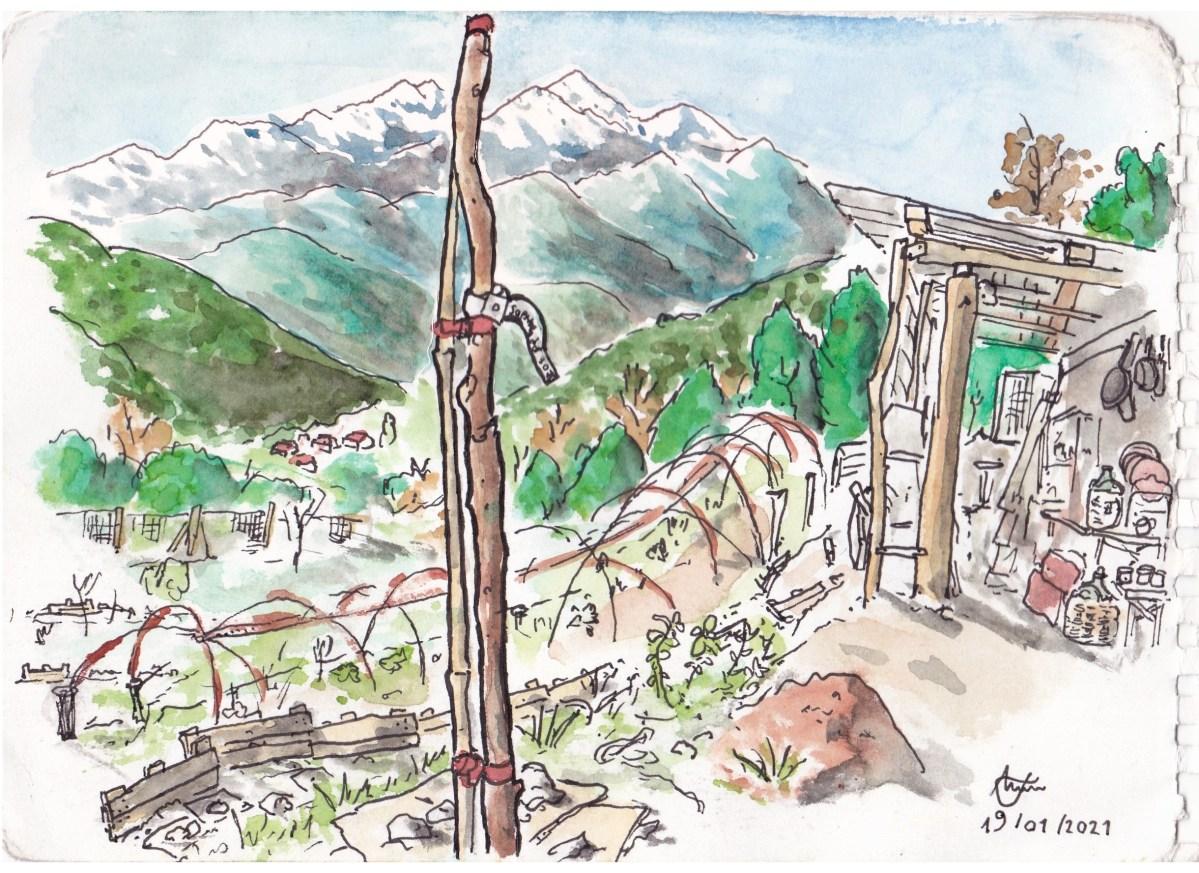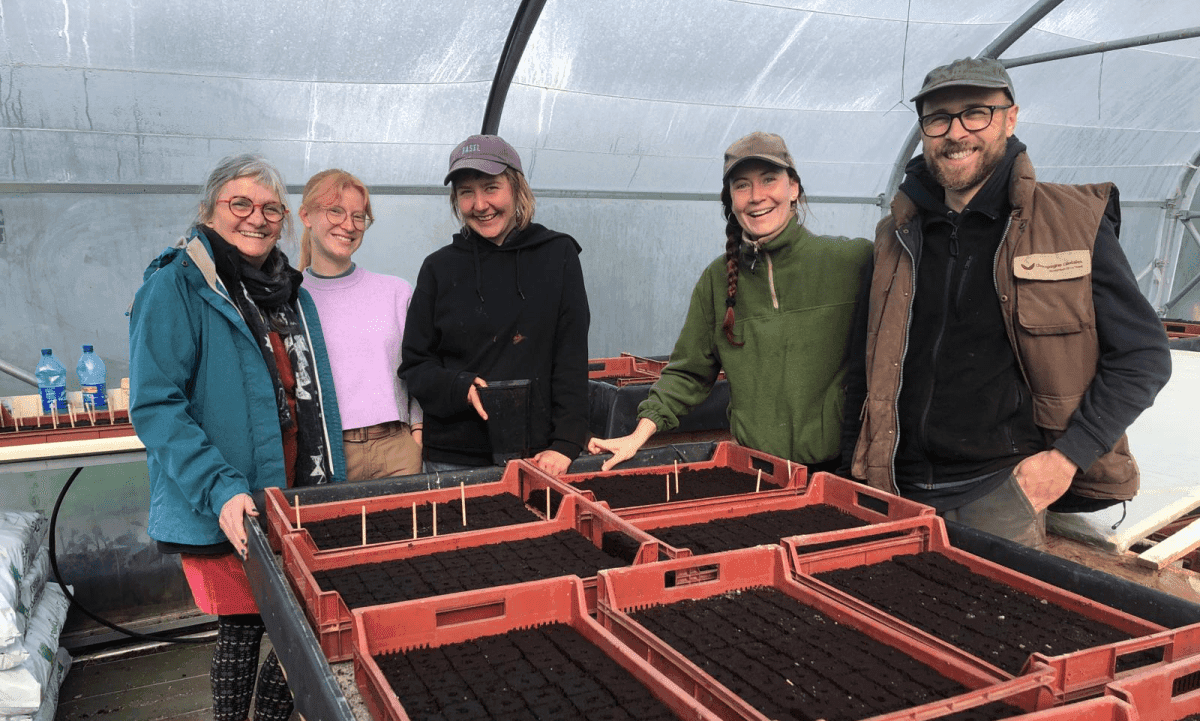
Tricks of the Trade: the Art of Savoir-Faire on the Farm
Cheesemaking, permaculture, raising animals—members of the WWOOFing community express their love for learning and sharing. A need to reconnect with how to make and do the everyday things in life.
Audrey, WWOOFer and host, "learning a trade can change your life"

At Ferme Lou Cornal there are many different savoir-faires...making the goat cheese, butchering chickens and pigs. We make everything from paté and boudin sausages to charcuterie. WWOOFers are with us almost 100 percent of the time, accompanying us during every step of these processes. That’s how they learn the tricks of the trade.
We explain everything we are doing. How to do it, then after some time they try to do it themselves. Like in the fromagerie or cheese-shop, it takes about one week to get everything down pat and after they are able to be autonomous if they like.
It’s a continuous and evolving enrichment of mutual exchange!
Some WWOOFers have totally changed their lives after coming to volunteer on our farm—like me! I arrived as a WWOOFer on the farm three and a half years ago. Before I was doing financial research for associations on nature preservation and was bored to tears working in an office. I started WWOOFing at Ferme Lou Cornal and have become part of their farm association. I’m in charge of raising and taking care of the pigs.
Not only me. There have been others who have changed their career course after learning on our farm. One WWOOFer in particular who came this summer had discovered for the first time the craft of cheese-making. After her experience here, she went on to work with other cheese-makers and cheese-shops; and to think that before she was working for painting enterprises. There are several stories like hers and like my own. It’s a continuous and evolving enrichment of mutual exchange!
Discover Ferme Lou Cornal here
Odile, farmer in Savoie on "the magic of cheese-making and learning from one another"

Lot’s of WWOOFers contact me because they are interested in learning about traditional french cheese-making. I do lot's of things but you could say cheese is my specialty. There’s a growing trend of people who are wanting to learn how food is made but more than that, they want to get back to the lost knowledge of how to make things in the modern world.
One time, the tables were turned and a WWOOFer had taught me something about cheese-making.
I gave my last cows to my daughter but I continue to make cheese and share this knowledge with WWOOFers when they come. White cheeses, tomme de savoie and even mozzarella!
The tables were turned when a WWOOFer had taught me something about cheese-making. He's a regular WWOOFer of ours who lives in Turino, Italy, 200 km from us and has been coming for about 7 years now. The second time he came, he brought a recipe from when he was working on a mozzarella farm in Italy. We said, OK, let’s do this! I taught him about making french cheeses, and he taught me about Italian cheese. I finally got it down and continue to make mozzarella on the farm to this day. It’s a magic moment when you get to share cheese-making with someone.
See host's profile here
Nick, "life lessons in WWOOFing"

When I went WWOOFing with then girlfriend, now wife, our hosts specialized in raising angora goats, known for their very lustrous fiber called "mohair." The legend being that these goats produce ‘the golden fleece,’ softer than sheep's wool yet insulates very well. They raised them to sell the hair to other processing facilities in France where it’s dyed and woven into fine clothing.
We weren’t particularly interested in raising goats ourselves for the future. In fact, we went WWOOFing in France for three reasons: to improve our french language, to work on a farm, and to be in a sunny location. That’s how we ended up at Le Bois de Praille.
Our hosts gave us life advice that always stuck with us.
Yet we gleaned so much more from the experience than we ever imagined. We do hope to have our own family organic garden one day for our own produce. Our hosts taught us about permaculture: how much space cabbage needs, rotating crops, do it yourself recipes like tomato sauce from your own tomatoes and jams which we still make today living in Finland.
Even more unexpected, as a young serious couple, our hosts gave us life advice. How is it starting a family? A family business? How to make the transition from city life to the countryside? Technical training as a couple. The advice that stuck with me the most was about making decisions and sacrifice in relationships and in life—you have to give up something to gain something else. The art of compromise so to speak!
See Le Bois de Praille's profile here
Jason, on the art of sustainability

Our journey to sustainability started with our daughter’s diabetes diagnosis. It led me to start thinking about our food, what we are consuming and how we are consuming it. We started shopping organic or doing what we could living in a big city like Paris. Then the virus hit...we took confinement in the Fontainebleau forest. We started to experience a sense of contentment in buying from local farmers and producing no trash.
I stumbled upon this concept of “permaculture” and felt a calling to change our lives for the better. We decided to go for it: we found a house and started the quest of transitioning from an over-consuming life to a more simple and sustainable one. With the WWOOFers who come to stay with us, we show them how this is possible—like using a dry toilet!

Sustainable living is a lifestyle. It’s not just about what we do in the garden, but what we do in our home. My wife loves to make homemade laundry detergent from ivy with the WWOOFers. We make a common-household product from something we have in abundance as it grows wild and plenty around here.
Another sustainable exercise we do with WWOOFers is this idea of reverse recipe making. Because we work on the local farms, we will get three crates of the same vegetable. We have to get creative in how to prepare them. Conventional cooking is taught in a way that you look up a recipe and go to the store to buy those ingredients. Challenging ourselves to think in a sustainable way, we work backwards: we look at what we have on hand and get creative in making a recipe out of it.
Discover The Tamarind Tree Permaculture Farmstay profile here
Lire davantage
Une fois par saison, l'actualité du WWOOFing par email


